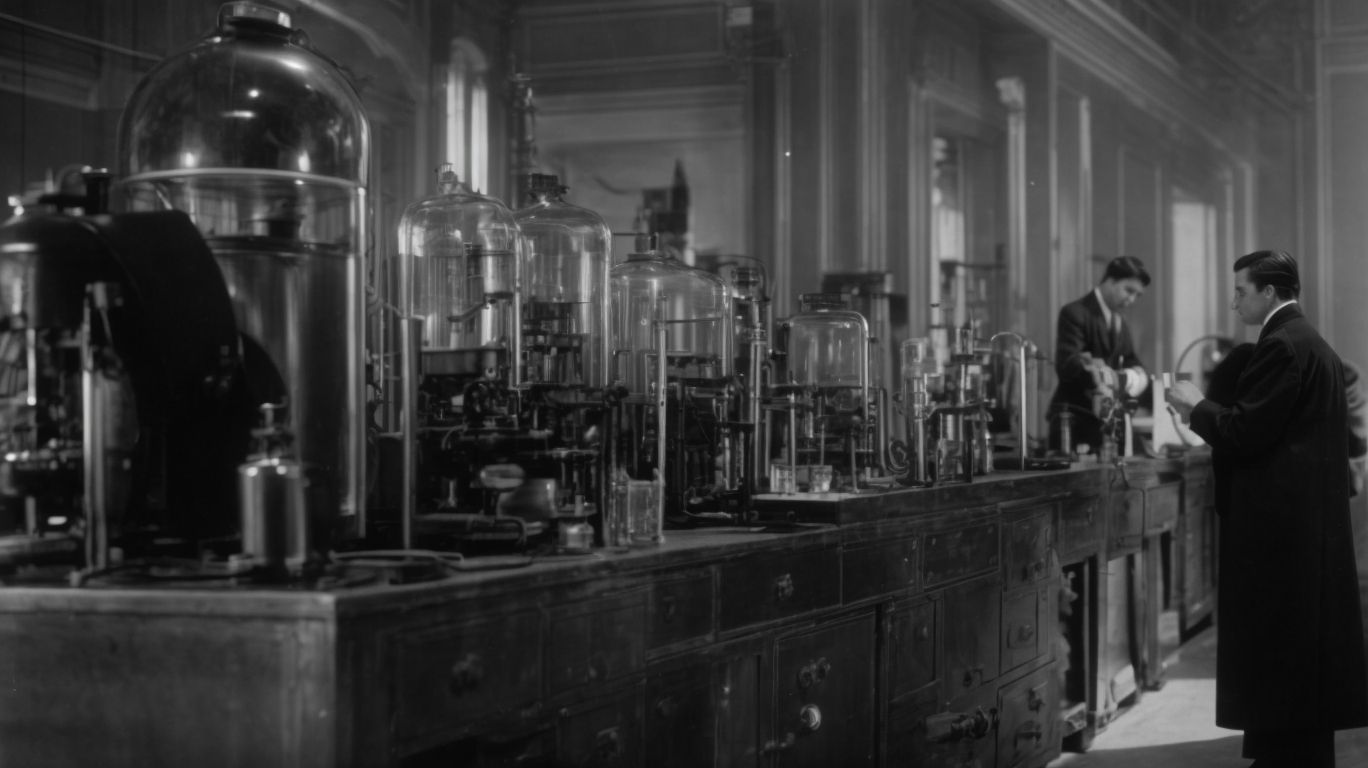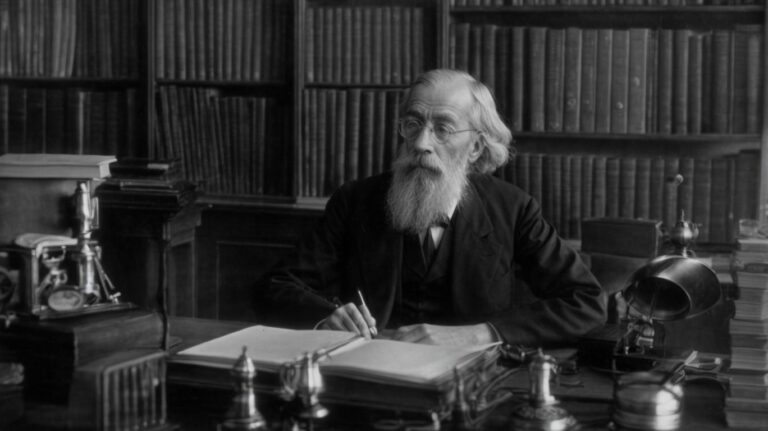Have you ever wondered who founded the first psychology lab and why it was established? The first psychology lab, established in 1873, marked a significant milestone in the field of psychology. This article explores the origins of the first psychology lab, its purpose, location, experiments conducted, key findings, and its impact on the field of psychology.
Join us on a journey through history to uncover the significance of this pioneering establishment.
Contents
- 1 Who Founded the First Psychology Lab?
- 2 Why Was the First Psychology Lab Established?
- 3 Where Was the First Psychology Lab Located?
- 4 What Experiments Were Conducted at the First Psychology Lab?
- 5 What Were the Key Findings from the First Psychology Lab?
- 6 Impact of the First Psychology Lab on the Field of Psychology
- 7 Conclusion: The Significance of the First Psychology Lab
- 8 Frequently Asked Questions
- 8.1 What is the significance of the first psychology lab in 1873?
- 8.2 Who was the founder of the first psychology lab in 1873?
- 8.3 What was the purpose of the first psychology lab in 1873?
- 8.4 What were some of the influential experiments conducted in the first psychology lab in 1873?
- 8.5 How did the establishment of the first psychology lab impact the development of psychology as a discipline?
- 8.6 Is the first psychology lab still in existence?
Who Founded the First Psychology Lab?
The first psychology lab was founded by Wilhelm Wundt, known as the father of experimental psychology, who established the lab to pioneer the scientific study of behavior and consciousness.
Wilhelm Wundt, a German psychologist, made groundbreaking contributions to the field of psychology during the late 19th century. His work focused on understanding the human mind through empirical research, a novel approach at the time. Wundt’s emphasis on science and observation laid the foundation for modern psychology. By creating the first psychology lab in 1879 at the University of Leipzig, he provided a structured environment for studying human behavior and consciousness. This marked a significant shift towards psychology as a distinct scientific discipline, separate from philosophy and physiology.
Why Was the First Psychology Lab Established?
The first psychology lab was established to bridge the gap between philosophy and science, with a focus on exploring physiological psychology through rigorous experimentation and introspection.
During the late 19th century, psychology was transitioning from a philosophical discipline filled with abstract concepts to a more empirical science grounded in observable phenomena. Wilhelm Wundt, a German physiologist and psychologist, recognized the importance of applying scientific methods to the study of the mind, leading to the founding of the first psychology lab at the University of Leipzig in 1879. This marked a significant milestone in the history of psychology, as it shifted the focus from subjective introspection to objective measurement and observation.
What Was the Purpose of the First Psychology Lab?
The primary purpose of the first psychology lab was to investigate the structure of consciousness through the lens of structuralism, a theoretical framework introduced by William James and Wilhelm Wundt.
Structuralism aimed to break down conscious experience into its basic elements to understand how they combine to form the whole mental experience. William James emphasized the study of individual perception, emotions, and thoughts as crucial components in understanding consciousness.
The laboratory set up by Wilhelm Wundt in Leipzig, Germany, in 1879, served as a pioneering platform where psychology could be examined as an experimental science rather than a branch of philosophy. Wundt focused on objective introspection to analyze and record thoughts while maintaining precise conditions to ensure reliable data.”
Where Was the First Psychology Lab Located?
The first psychology lab was located at the University of Leipzig, Germany, providing a dedicated space for pioneering research and laboratory experiments in the field of psychology.
Founded in 1879 by Wilhelm Wundt, considered the ‘father of experimental psychology,’ the lab marked a turning point in the academic world, swiftly becoming a beacon for scholars.
Wundt’s innovative approach of focusing on conscious thoughts and perceptions laid the groundwork for modern psychological inquiry.
Being situated within a renowned academic institution like the University of Leipzig further enhanced the lab’s credibility and attracted numerous students eager to delve into the burgeoning field of psychology.
What Experiments Were Conducted at the First Psychology Lab?
At the first psychology lab, groundbreaking experiments were conducted that influenced the history of psychology and inspired generations of students and researchers.
One of the key experiments carried out in the first psychology lab was by Wilhelm Wundt, who pioneered the use of experimental methods to study human behavior. His focus on introspection, the process of examining one’s thoughts and feelings, paved the way for a more systematic approach to psychology. These experiments not only laid the foundation for modern psychology but also had a profound influence on the development of educational practices and the understanding of mental processes. The work done in this lab set a precedent for future scientists and researchers, shaping the course of psychological inquiry for years to come.
Reaction Time Experiment
One of the key experiments conducted at the first psychology lab was the groundbreaking reaction time experiment, which laid the foundation for future research in psychology and influenced prominent scientists in the field.
The reaction time experiment aimed to measure the time it takes for a participant to respond to a stimulus, providing insights into cognitive processes. This research breakthrough led to a deeper understanding of mental processes and set the stage for further exploration in psychology.
Prominent scientists like Wilhelm Wundt and William James were influenced by the outcomes of this experiment, shaping the trajectory of modern psychology. Their interpretations of the results contributed to the development of psychological theories and methodologies that are still relevant today.
Sensory Perception Experiment
Another notable experiment conducted at the first psychology lab focused on sensory perception and laid the groundwork for Gestalt psychology, influencing future researchers like Max Wertheimer.
The experiment delved into how individuals perceive and make sense of their environment, highlighting the idea that the whole is greater than the sum of its parts, a fundamental concept in Gestalt psychology. This approach challenged the reductionist perspective prevalent at the time and paved the way for a holistic understanding of human perception.
Max Wertheimer, a key figure in the development of Gestalt psychology, was particularly inspired by this experiment. He went on to conduct his research, applying the principles of Gestalt psychology to various aspects of cognition and perception, significantly advancing our understanding of how the mind organizes sensory information.
Memory Experiment
In addition, a significant memory experiment conducted at the first psychology lab contributed to advancements in psychology and education, aligning with the principles of humanism advocated by researchers like Wolfgang Köhler.
This memory experiment, often hailed as a groundbreaking study in the field of psychology, involved observing patterns of memory retention among individuals subjected to different learning methods. The results of this experiment not only shed light on the process of memory formation but also underscored the significance of personalized and experiential learning experiences in education. These findings resonated deeply with the core tenets of humanistic psychology, which emphasizes the importance of individual growth, self-actualization, and the inherent potential within each person.
What Were the Key Findings from the First Psychology Lab?
The key findings from the first psychology lab revolutionized the understanding of behavior and paved the way for behaviorism, influencing researchers such as Ivan Pavlov and B. F. Skinner.
In the early 20th century, behaviorism emerged as a dominant school of thought in psychology, emphasizing observable behaviors and environmental influences on behavior. Ivan Pavlov’s groundbreaking experiments with dogs, demonstrating classical conditioning, provided a fundamental understanding of how behavior is learned through associations.
Similarly, B. F. Skinner’s research on operant conditioning further advanced behaviorism, highlighting the role of reinforcement and punishment in shaping behavior. The influence of these prominent figures in psychology reshaped the field, establishing behaviorism as a cornerstone in the study of human behavior.
Impact of the First Psychology Lab on the Field of Psychology
The first psychology lab had a profound impact on the field, shaping the future of psychology and influencing prominent figures such as John B. Watson, Max Wertheimer, and Kurt Koffka.
Established by Wilhelm Wundt in Leipzig, Germany in 1879, the first psychology lab marked a pivotal moment in the history of psychology. It laid the foundation for the study of the mind and behavior as an academic discipline, influencing generations of scholars and researchers. Wundt’s focus on introspection and experimental methods paved the way for the development of various psychological schools of thought.
John B. Watson, a behaviorist, drew inspiration from the experimental work conducted in the first psychology lab, shaping his own theories on observable behaviors. Max Wertheimer, a Gestalt psychologist, was also influenced by the groundbreaking research at the lab, leading to significant developments in perception and cognition. Kurt Koffka, another key figure, further expanded upon the Gestalt principles, emphasizing the importance of holistic perceptions in psychology.
Establishment of Psychology as a Science
One of the significant impacts of the first psychology lab was the establishment of psychology as a distinct scientific discipline, spearheaded by pioneers like Wilhelm Wundt and G. Stanley Hall.
With the opening of the first psychology lab in the late 19th century by Wilhelm Wundt in Leipzig, Germany, the budding field of psychology transitioned into a more structured and systematic scientific discipline. Wundt, often referred to as the ‘father of experimental psychology,’ meticulously designed experiments and methodology that focused on introspection and conscious experiences.
The establishment of the first psychology lab under the guidance of G. Stanley Hall in the United States further solidified psychology’s standing as a scientific field. Hall’s contributions, particularly through the founding of the American Psychological Association in 1892, laid the groundwork for the professionalization and advancement of psychology as a rigorous scientific discipline.
Development of Experimental Methods
The first psychology lab played a crucial role in advancing experimental methods within psychology, paving the way for innovative research approaches championed by psychologists like James McKeen Cattell.
With the establishment of the first experimental psychology lab by Wilhelm Wundt in 1879 in Leipzig, Germany, the field of psychology underwent a significant transformation. Wundt’s lab served as a hub for conducting controlled experiments, measuring psychological phenomena, and emphasizing introspection as a method of inquiry. Experimental psychology lab settings allowed researchers to systematically study mental processes and behavior, leading to a more empirical and scientific approach to understanding the human mind.
Influence on Future Psychologists and Research
The legacy of the first psychology lab resonated through generations, inspiring future psychologists, and researchers to delve into the realms of human behavior and cognition, influenced by luminaries such as Karl Ewald Hasse and Hermann von Helmholtz.
This historic establishment marked a turning point in the field of psychology, steering the course of research towards empirical methods and systematic observation. Envisioned as a laboratory dedicated to unraveling the mysteries of the mind, it set a precedent for future explorations. The fusion of philosophy and science within this pioneering setting laid the foundations for modern psychological inquiry. The enduring influence of this lab transcends time, as contemporary scholars still draw inspiration from its rich history and groundbreaking work.
Conclusion: The Significance of the First Psychology Lab
The establishment of the first psychology lab marked a pivotal moment in the history of psychology, catalyzing a scientific revolution that continues to shape our understanding of human behavior and cognition, with far-reaching implications recognized by institutions like Harvard University.
The introduction of a dedicated research laboratory within a university setting not only provided a structured environment for scientific inquiry into the complexities of the human mind but also paved the way for the systematic study of behavior and mental processes. The ripple effects of this foundational step in psychological research reverberate through modern-day psychology programs, imbuing them with the ethos of empirical investigation and critical analysis. Harvard University’s recognition of this significance further underscores the enduring impact of the first psychology lab on the trajectory of psychological science.
Frequently Asked Questions
What is the significance of the first psychology lab in 1873?
The first psychology lab in 1873, established by Wilhelm Wundt, marked the beginning of psychology as a scientific discipline and a separate field of study from philosophy.
Who was the founder of the first psychology lab in 1873?
The first psychology lab was founded by Wilhelm Wundt, a German psychologist and philosopher, in 1873 at the University of Leipzig.
What was the purpose of the first psychology lab in 1873?
The first psychology lab was established as a place for conducting experiments and observing human behavior in a controlled setting, with the aim of understanding the mind and behavior through scientific methods.
What were some of the influential experiments conducted in the first psychology lab in 1873?
Some of the influential experiments conducted in the first psychology lab included reaction time experiments, perception studies, and introspection experiments, which formed the basis for understanding the mind and behavior.
How did the establishment of the first psychology lab impact the development of psychology as a discipline?
The first psychology lab in 1873 played a crucial role in the development of psychology as a scientific discipline, as it led to the adoption of experimental methods and the study of mental processes as a legitimate field of study.
Is the first psychology lab still in existence?
The first psychology lab established by Wilhelm Wundt in 1873 is no longer in existence, as it was eventually disbanded. However, its legacy lives on as it marked the beginning of psychology as a separate scientific discipline.




